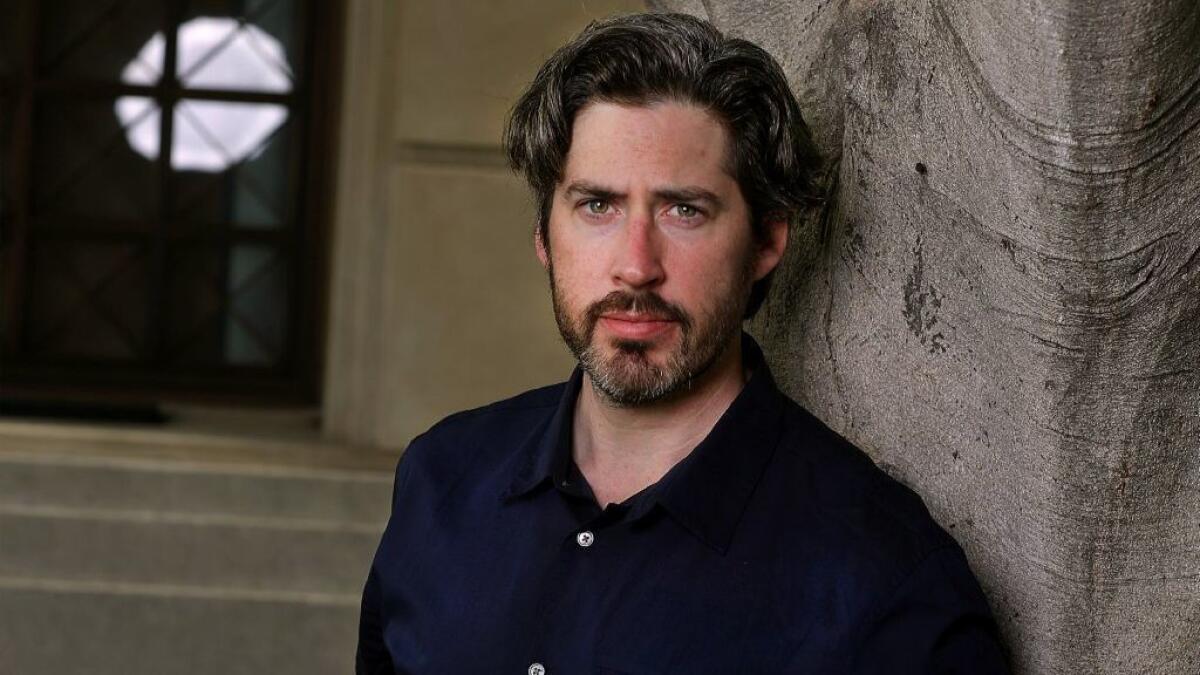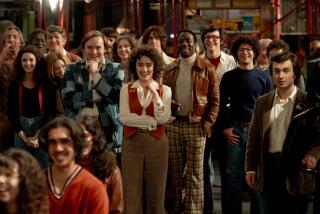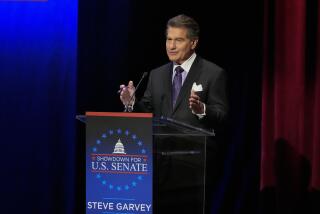Jason Reitman’s not pointing a finger with ‘Front Runner,’ just opening up a discussion

- Share via
The rise and fall of Gary Hart has somehow slowly been lost to history. The Colorado senator ran for the presidency twice and was widely seen as the Democrats’ likely nominee in 1988. Just after announcing his candidacy, however, Hart’s political life took a turn that in many ways signaled a major change in how Americans view their elected officials. The scandal surrounding him, and if there truly was one, is the subject of Jason Reitman’s “The Front Runner,” which finds Hugh Jackman playing the embattled candidate in a searing performance.
The 41-year-old director of films such as “Up in the Air” and “Juno” was reminded of Hart’s downfall after listening to a “Radiolab” podcast in early 2016. After talking to his producing partner, Helen Estabrook, he realized she had a completely different response to this story even though they are around the same age and have similar political leanings. That was something he continued to encounter throughout the production whether it was one of the film’s large acting ensemble or a member of the crew.
“Everyone had a completely different response to what the Gary Hart story means in 2018,” Reitman says. “One person may look at it and go, ‘The man has a private life that doesn’t involve us, he should be able to kind of shut the door in his bedroom.’ The next few may go, ‘This is the first moment of truth to power and bringing down a leader who needs to be exposed.’”
Reitman believes Gary Hart’s story serves as an interesting litmus test. If a candidate had great ideas but was also simultaneously an irrefutably flawed person, would it be important if he made an irresponsible mistake? Does any questionable action mean a candidate should no longer run for office? Considering the reaction to Donald Trump’s candidacy when Reitman, Matt Bai and Jay Carson were writing the script, it seemed to be a very timely question.
“I felt going into the presidential election that this country was already at a moment of conflict of what we wanted to know about the private lives of the people we were electing,” Reitman says. “I mean before [Trump] was elected we were already talking about how much we should know about his private life. And I think that goes for previous presidents as well. I mean, I think we obviously went through this debate on Clinton, and kind of a variety of people and not just in respect to their sex lives.”
But there are huge differences between the current cultural landscape and what Hart encountered 30 years ago. At the center of his scandal was Donna Rice (portrayed by Sara Paxton), a Florida woman who Hart was accused of having an affair with after she was photographed going into his Washington, D.C., townhouse. Both Hart and Rice refuted the report, but with more tabloid-esque stories of Hart’s “womanizing” in the news, he withdrew from the race.
In order to truly capture the sometimes frantic nature of a campaign, Reitman and his screenwriters watched films such as Michael Ritchie’s “The Candidate” and the Bill Clinton documentary “The War Room” for inspiration. One technique Reitman learned from Ritchie, that was often seen in the work of his contemporary, Robert Altman, was having the actors ricochet off one another with simultaneous conversations as the camera zooms from one part of a room to another.
In order to make this as realistic as possible, Reitman and his writers needed to compose additional dialogue for numerous characters in each scene. He notes, “We would write the script, but then we would write pages for other characters. Like there’ll be addendum pages for other characters to have dialogue [during the scene].”
It’s unclear what audiences’ appetite will be for such a distinctly political tale after a long and passionate midterm campaign, but Reitman is hoping “Front Runner” is a conversation starter for many.
“None of my movies have ever had a message,” Reitman says. “The purpose of my film has never been ‘think this.’ I choose the stories I do because I think they are reflective. I think that they are movies that hopefully you see yourself in and the story becomes a prism through which you can talk about the things that are on our minds today.”
WATCH: Video Q&A’s from this season’s hottest contenders »
More to Read
From the Oscars to the Emmys.
Get the Envelope newsletter for exclusive awards season coverage, behind-the-scenes stories from the Envelope podcast and columnist Glenn Whipp’s must-read analysis.
You may occasionally receive promotional content from the Los Angeles Times.






